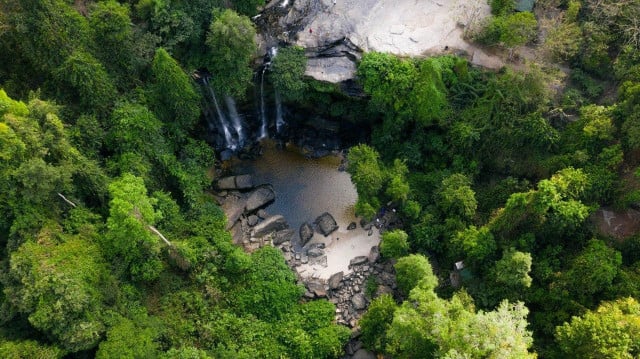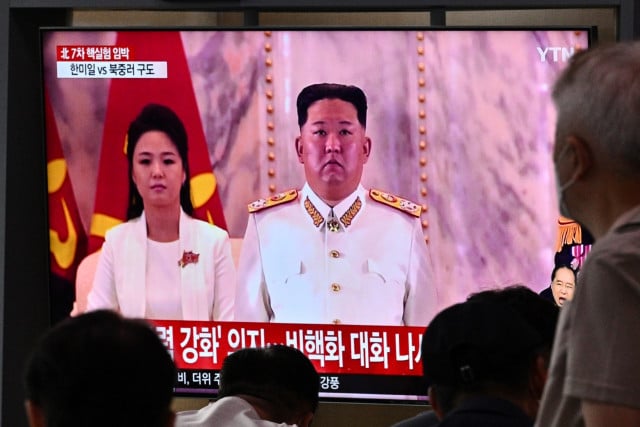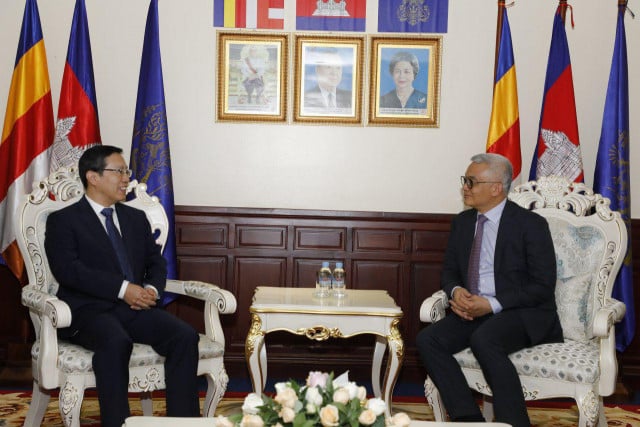A UNDP Report Urges Cambodians to Cut Down on Energy Use

- Jazmyn Himel
- May 1, 2020 7:26 AM
This is a matter of people saving money in the short-term and preserving the environment for the future
PHNOM PENH—Cambodian households with air conditioning units tend to turn them on 14 hours a day on average, according to a recent United Nations Development Program (UNDP) report.
In Phnom Penh, 33 percent of energy use is spent on refrigerators, 28 percent on cooking and 16 percent on space cooling.
“If we can reduce our use of energy, we can help reduce global heating, make our air safer to breathe and reduce pressure on the natural environment,” UNDP representative Nick Beresford explained in an email interview conducted with him and his team of experts. “As we look to recover quickly from the COVID-19 crisis, this is a good option for a middle-income country like Cambodia looking for a cleaner, safer and more prosperous future.”
Cambodian households can save up to 21 percent energy by, the report said, “improving natural ventilation, lighting control, energy-saving bulbs, and low-E coated glass.”
By replacing lighting, refrigerators and air conditioning devices with more efficient technology, the report said, “each family could save up to 3,000 kilowatt-hours of electricity and 545 US-Dollars in energy cost every year.”
“We can all help each other during this pandemic if we can reduce our use of electricity,” Beresford said. “Although COVID-19 has reduced industrial output and cut energy use, this has not been enough to prevent power cuts to many parts of the grid.
“Reducing domestic consumption of energy helps reduce the need for load shedding and that benefits everyone in the grid,” he said. “Increased use of renewable and alternative energy sources can reduce increased dependence on imported fossil fuel, leading to a cleaner and greener energy mix.”
The UNDP report recommends that people open windows or use fans instead of air conditioning And if, they use air conditioning, that they set it at 26-to-28 degrees Celsius instead than cooler—one can save 3 percent of energy by raising air-conditioning temperature by 1 degree Celsius, the report said.
Closing doors and windows can help preserve the cool air inside, the report said. Air conditioning units should also be cleaned every six months so they will run more efficiently, the report added.
When it comes to lighting, the UNDP report said that, in addition to switching off lights that are not needed, LED light bulbs help to lower electricity bills.
A regional concern
The issue of energy consumption however, spans beyond individual households. ASEAN countries have committed to reducing its total energy intensity to 30 percent by 2025, and Cambodia means to reduce its consumption by 20 percent by 2035.
In the country, 38 percent of the electricity is generated in power plants with fossil fuels—mainly coal and fuel oil—which emit carbon dioxide and other gases that contribute to increasing the temperature of our atmosphere, Beresford said in the email interview.
“Individuals’ ownership in reducing the use of energy is a key in responding to this challenge,” the UNDP report said, adding that governments have a role to play in helping households spend less energy.
One way for the government to do so is by promoting standards to label high-energy consuming appliances. Cambodia has already taken initiative toward doing so.
However, Beresford said, “Cambodia still needs favorable regulatory policies and framework to promote rooftop solar so that every individual household can be a generator of energy [rather] than consumer.
“[A]lthough there are some positive changes recently in this direction, these are several challenges that need to be overcome to see a market transformation for solar energy in Cambodia,” he added.















